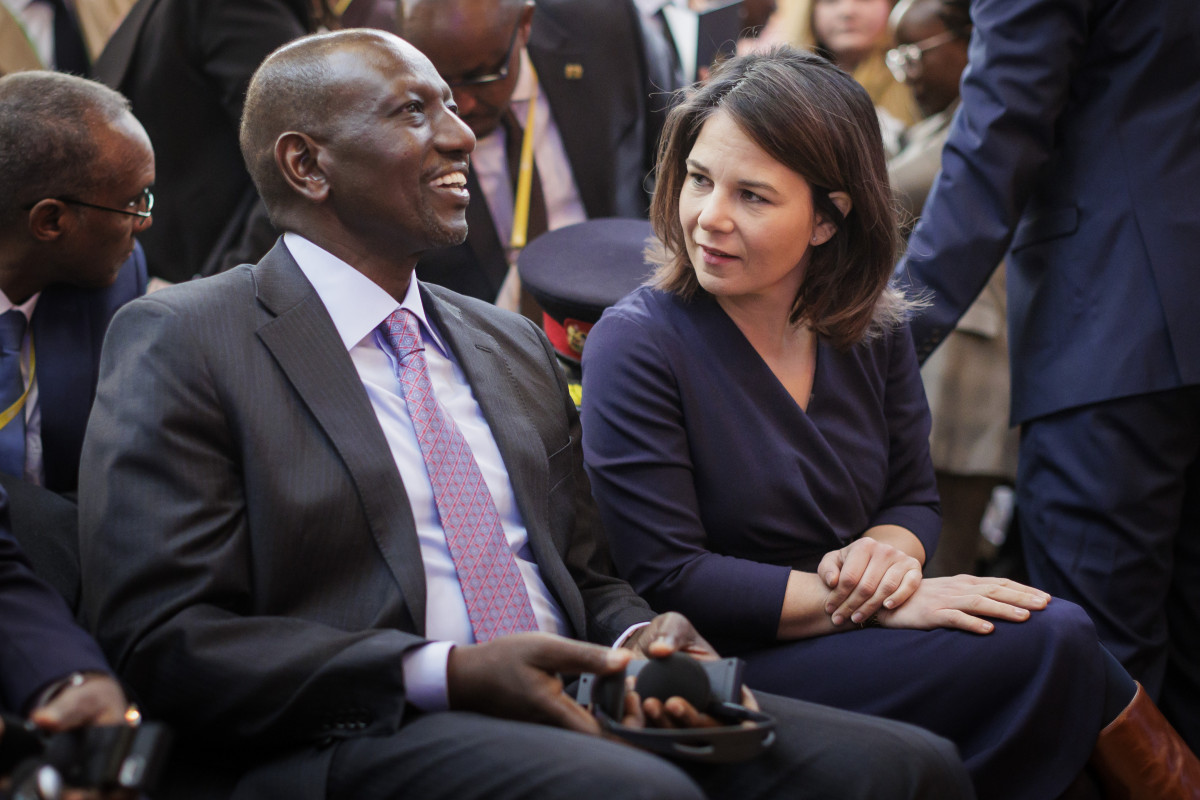Africa key European energy transition partner, says Kenya’s president, warns against trade barriers
Clean Energy Wire
Africa could become Europe's most important partner for the development of the energy transition, provided the right kinds of investments are made at sufficient scale, Kenya’s president William Ruto said in his opening speech at the Berlin Energy Transition Dialogue (BETD). “With the right level of investment, Africa can provide energy access for all by 2030 while reducing total emissions related to energy generation by approximately 80 percent,” Ruto said at the conference hosted by the German government. Pointing out that Africa is home to between 30 to 40 percent of the world’s raw materials needed for the energy transition, Kenya's president said that the planned EU carbon border adjustment mechanism (CBAM) should encourage low-emissions production from the continent. He added that the bloc could enhance innovative financing by using more high-quality African carbon credits in EU emission trading markets, which offer core benefits such as increased biodiversity and improved livelihoods. Ruto called for cooperation in ensuring support for the places that are doing “the difficult work of protecting nature,” making finance more easily available, accessible and affordable, while increasing debt limits.
Germany is trying to diversify its import partners and reduce dependencies, especially in the energy and raw materials sectors. “We can’t repeat the same mistakes we committed in the past,” foreign minister Annalena Baerbock said referring to Germany’s dependency on Russian fossil fuels, which forced the country to also re-evaluate its dependencies on raw materials and supply chains. While the upcoming Critical Raw Materials Act in the EU would ensure the bloc’s industry will have sufficient access to raw materials going forward, “we can’t do magic on European soil,” Baerbock said. Thus, international partnerships “at eye level” are needed, meaning that everyone should profit, especially the countries where the resources come from. “Global security depends on getting away from fossil fuels,” the Green Party politician said, adding that “climate transformation is the security challenge of our age.”
Closer cooperation on renewables and green hydrogen would benefit Europe and Africa, the president of the European Investment Bank (EIB), Werner Hoyer, said in early 2022. “Europe would gain access to enormous wind and solar energy resources, Africa in return would gain access to state-of-the-art energy generation technologies that could largely spare the continent the CO2 emissions and air pollution of the fossil age.” Germany announced a new ‘Africa strategy’ in January, which focuses on building framework conditions to foment the creation of new jobs — especially in the areas of renewable energy, climate protection, sustainable agriculture and health — and support a socio-ecological transformation of the economy on the continent.


